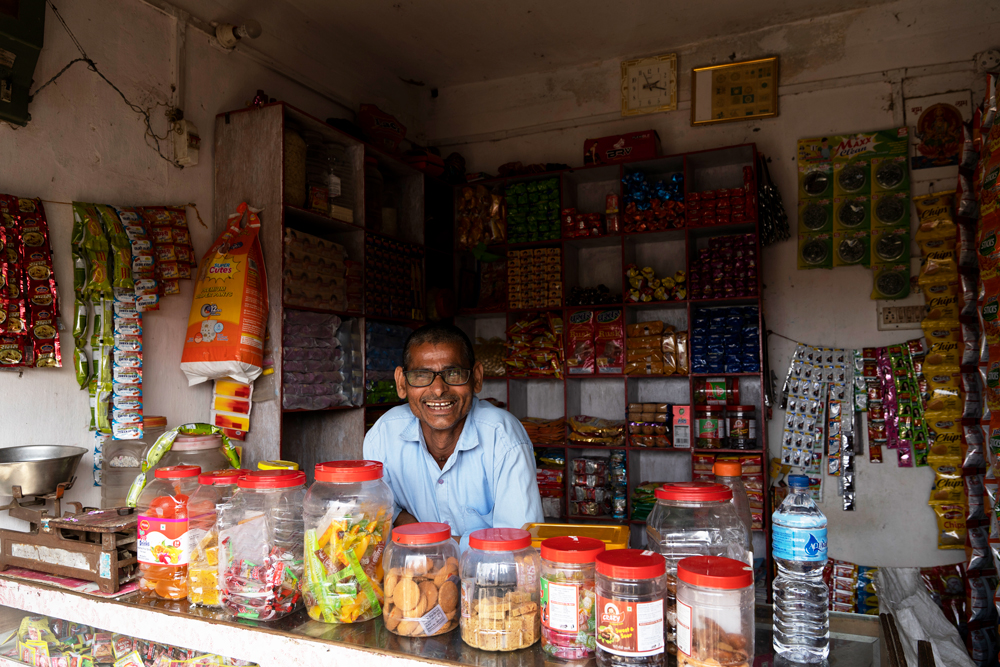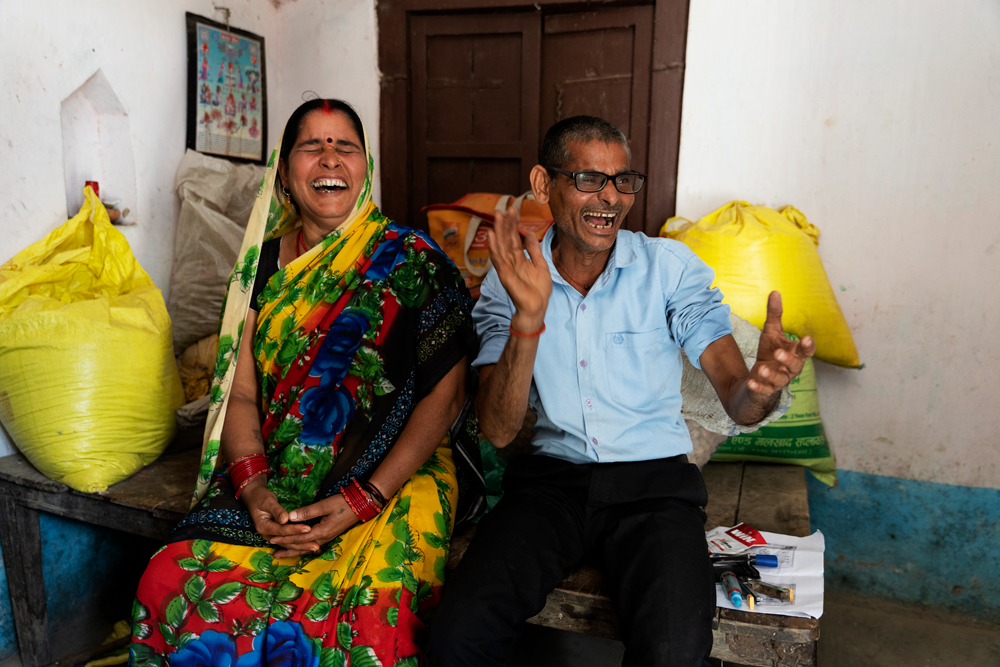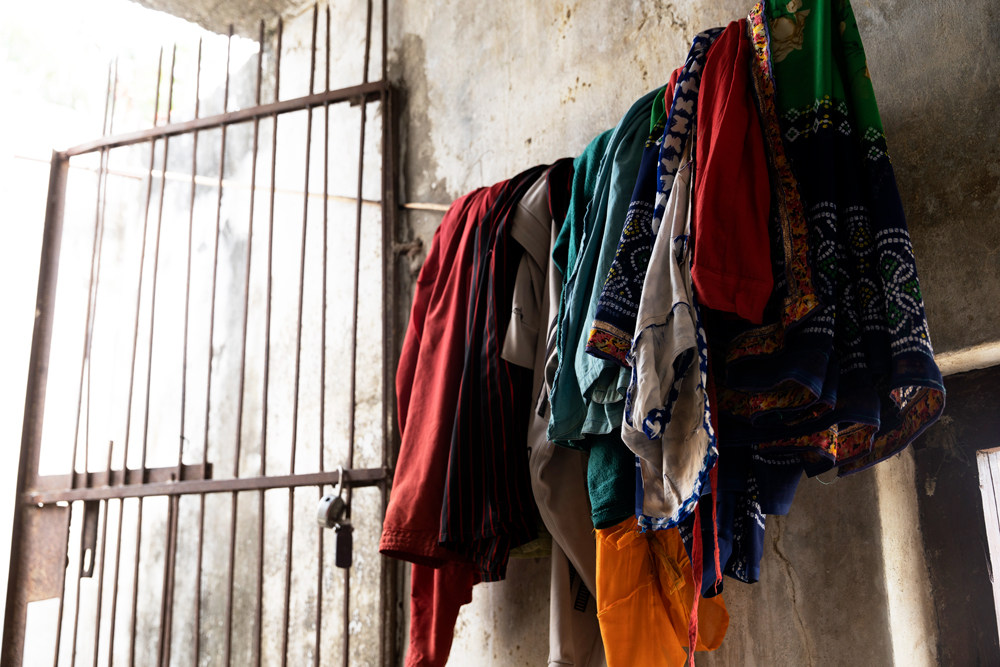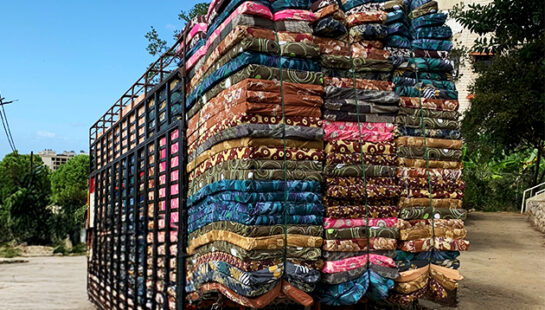It was our last day in Nepal, seeing the life-changing work our Partners were doing in local communities.
After a week of meeting so many wonderful people and hearing their stories, my heart was happy—full. Little did I know that we were about to be welcomed into the home of the most joyful couple I think I have ever met.
Enter Shiva and his wife, Gita. Affected by a physical disability, Shiva found it difficult to undertake work. There was no lack of trying on Shiva’s behalf—his body just couldn’t work as fast as everyone else, no matter how hard he tried.
I watched as Shiva showed us his three-year-old shop, attached to the front of his home. He was limping with the biggest ear-to-ear grin. His wife, quiet in the corner, watched on.
I was struck by her soft-natured presence. Reserved, but not shy, her radiant and close-lipped smile captivated me. She wore a sari, a traditional Nepalese and Indian outfit worn by most women in these rural communities. It’s what I’d imagine Joseph’s coat of many colours would look like, splashed with yellows, red, blues and green.
Shiva The Businessman And Advocate
Shiva told us how the small funding grant from our Partners he had received had changed his life. He was able to establish a small shop and grow it into a successful business from the profits. As he spoke Gita sat next to him, taking the moment in.

I quickly learned that Gita is a woman of character and integrity. She’s proud of how her relationship with Shiva is a ‘love marriage’! Even though Gita knew married life would be difficult without Shiva’s ability to earn an income easily, she convinced her father to let them marry anyway. Twenty-seven years, five children and a grandchild later, they owned a small but thriving family business, and were putting aside savings each week.
Once ostracised, Shiva had gained status in the community as a successful businessman and disability advocate. He and Gita’s home is open for people with disabilities to connect and receive help (free of charge) to successfully apply for a concession card from the government—they’ve helped over 125 people living with a disability so far!
Success Is Best Shared
This isn’t just a blockbuster love story; it’s a picture of a family working hard for success, then giving back to their community. We talked, laughed, and the family made us milk masala tea and snacks to share. I watched as their daughter and daughter-in-law shared in the same joy I had seen in Shiva and Gita.

Gita was so proud of her husband for all he had overcome, and she had supported him through good and bad over the years. I wanted to know more about her life, so when Shiva had finished sharing his story with us, we asked Gita what the shop meant for her family. The business had changed their lives, but what struck me most was a side comment she made.
‘I used to own one sari, but now I have four,’ Gita said, touching her sari and smiling gently.
From Gita’s perspective, four saris represented options. Choice. Wealth. It meant that as a family, they weren’t struggling and scraping by; they were no longer living on the bare minimum.

How many outfits do I own? Far more than four. I had bought two kurtas (traditional Nepalese outfits) to wear in the community during this visit—half of Gita’s wardrobe. My guess is that you may own more than four outfits too.
A Lingering Challenge
And months later, I can’t stop reflecting on these saris—all four of them.
I try not to own an excessive amount of clothing. But to own four outfits? Dare I say impossible.
By our (or perhaps my) Western standards, Shiva’s family is still living in what we’d consider as material poverty—despite the wardrobe with four saris.
The Bible tells us not to get caught up in materialism. Matthew 6:25-27 says we are not to worry, as God will provide. But we do—or at least I do, and I don’t think I’m alone.
As we continue to face rising mortgage rates, rental hikes and a cost-of-living crisis, it’s so easy to think about ourselves and ignore the needs of others—to look inside. To feel like we won’t have enough, or that we’ll have to go without something we really want. But I think of Gita and the example she set for me without even knowing—she has mastered the secret of being content and joyful with what she has. Gita was proud to be married to Shiva, even before she had four saris. It’s a challenge to us in the West, who have so much and are caught up in wanting more.
Such contentment is a constant, daily battle. I ask God to convict and challenge me—to help me be generous, even in the hard times. And to help me be more like Gita, facing challenges with bravery, and growing in joy and contentment.



 Sophia Russell,
Sophia Russell,
